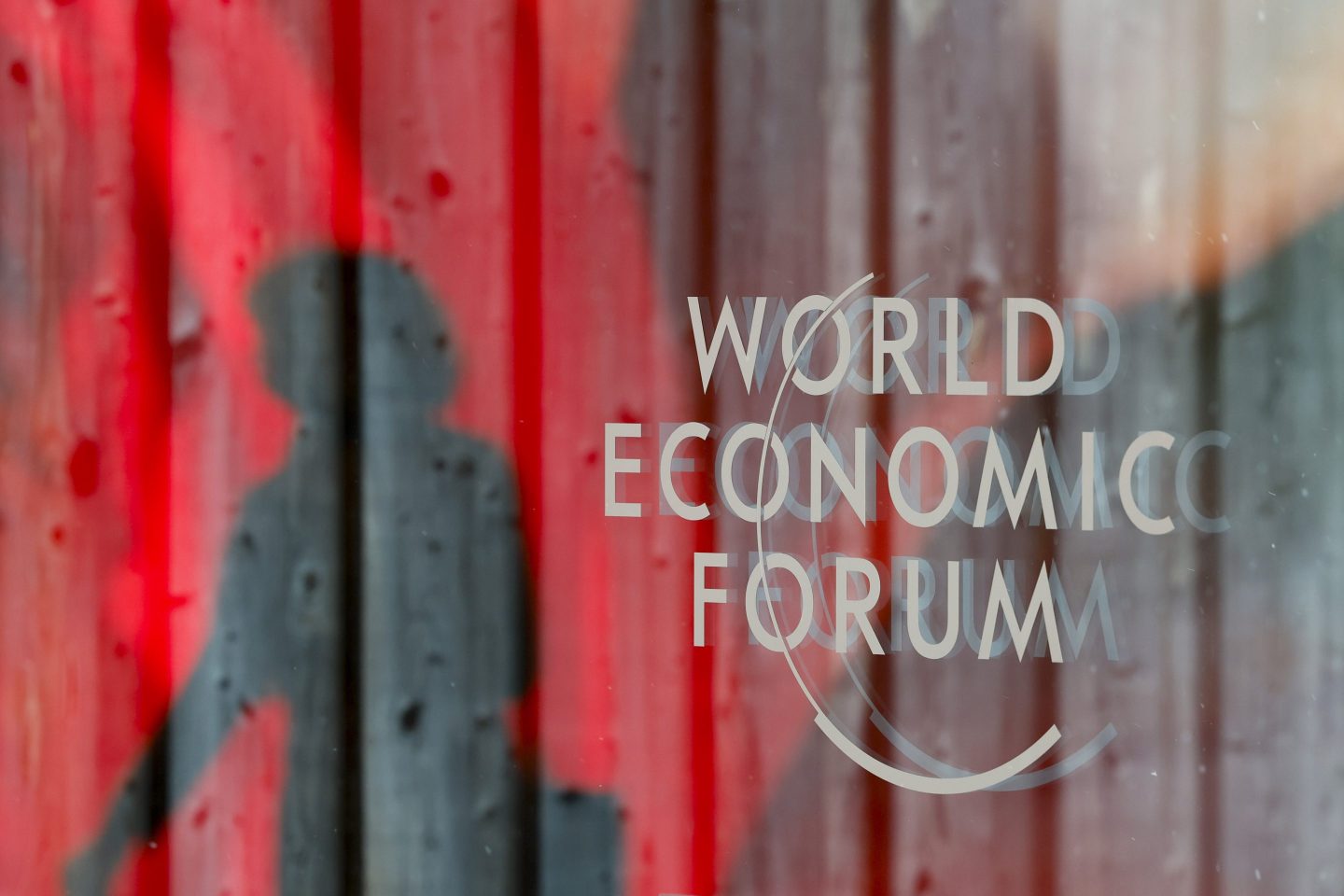Last week, world leaders in business and politics gathered at the World Economic Forum in Davos, as they do annually, to hobnob and wax on the most pressing issues of the year ahead. This year, fitting for this newsletter, the meeting convened under the theme “Rebuilding Trust.”
“Increasing division, heightened hostility, and a surge in conflicts are defining the current global landscape,” WEF founder Klaus Schwab wrote at the start of the convention last week. “Rebuilding trust in our future is paramount. The question is where to start, given today’s complex circumstances.”
In the past year, executives have frequently told me that the circumstances facing current leaders are more complex than those that confronted leaders in bygone decades—even though war, a grueling economy, and misinformation are common antagonists to global business.
The difference between now and then is twofold: first, the increased power of technology to amplify those age-old problems; and second, as a consequence of the first, the rise of interested stakeholders that each leader has to satisfy.
The first point is why this year’s Davos appeared to many people to be more a referendum on AI than a clinic on trust. The second point is perhaps why academic Walter Russell Mead wrote for the Journal that this year’s WEF meeting marked the “humiliation of Davos man.”
“The meeting’s ‘Rebuilding Trust’ theme acknowledges that something has gone wrong,” Mead writes, arguing that “people aren’t losing trust in their leaders because disinformation has muddled their brains. They are losing confidence because they sense that the establishment’s approach to the chief problems of the day isn’t working.”
“This isn’t, at its core, a crisis of trust. It is a crisis of competence,” Mead says. That argument isn’t wrong, although it’s mostly a rhetorical flourish that shifts focus from the symptom of a problem—growing distrust—to one of its causes.
In the business world, few leaders are equipped to deal with the competing demands of multilateral stakeholders. Despite the Business Roundtable’s official change of allegiance, shareholders—and their demand for profits—still reign supreme in corporate decision-making, and executive incentives that reward short-term gain over long-term improvements are still the norm.
But that’s not to say Davos man doesn’t know it. Even Schwab, in the rest of his opening memo, laments that leaders “still cling to outdated solutions” and that future problems need “holistic” solutions. Schwab goes on to say that “open, transparent conversations” will help leaders find their way out of that quagmire.
That suggestion might seem ironic or even dubious from the founder of an institution that facilitates world leaders cloistering themselves away in Davos. For a touch more irony, one of the event’s panels on building trust through transparency was mediated by Bronwen Maddox, chief executive of think tank Chatham House, famous for its rule of secrecy.
Whether Davos itself is too outdated to birth the “holistic” solutions is up for debate. As I wrote last month, there is a role for secrecy in building trust among leaders. So, in the meantime, if you know someone who is curious how today’s executives are tackling the issue of trust in their own industries, you might suggest they sign up for this newsletter.
Eamon Barrett
eamon.barrett@fortune.com
IN OTHER NEWS
X YouTuber
YouTuber MrBeast, one of the world’s highest-paid content creators, is skeptical that Elon Musk can rework X—formerly Twitter—as a video-first platform, after Musk appealed to him directly to post on the platform. MrBeast complied and posted an old video to X, earning close to $250,000 in ad revenue within a week. Not a small income for most, but the content creator says he doubts his income is representative of what an average user would receive.
Is Tesla going FSD?
Last spring, Elon Musk promised Tesla vehicles across the country would soon come to life and drive themselves with no one behind the wheel, causing them to quintuple in value as they earned money driving taxi passengers around while their owners slept. This bold prediction is now being put to the test, Fortune’s Christiaan Hetzner writes. On Monday, the latest version of his Full Self-Driving software was shipped to select U.S. customers in a very limited release right before Tesla’s quarterly earnings call with investors this week.
Hold onto your jobs
It’s a boom time for layoffs, especially in tech and media. With the exception of the pandemic, last year saw the highest yearly total of tech job cuts since the Great Recession, with companies cutting more than 720,000 jobs from their budgets, according to a report by Challenger, Gray & Christmas, Inc., a job market research company. Here are a few reasons why job security isn’t what it used to be.
Nighttime, from Meta
Meta has introduced a “nighttime nudge” to remind young Instagram users to limit their screen time when they should be in bed instead, part of Meta’s plan to help parents better supervise their children online. The announcement comes a day after newly unredacted documents from a New Mexico lawsuit against Meta, reviewed by Fortune, highlighted claims that it failed to protect children from solicitations for explicit photos and sexual exploitation.
TRUST EXERCISE
“What you need for that is courage…During our own transformation, our share price collapsed by 30%. But I needed to accept that in order to move forward. I saw the need to take a hit to focus on the mid- and long-term. It is similar to what many other companies are facing today.”
Christian Klein, CEO of SAP, talks to Fortune’s Peter Vanham about how he managed the tech giant’s pivot into a cloud-based platform, knowing that the transition would induce severe short-term pain. Although the company’s stock cratered during the costly transition, today, the company’s share price is at an all-time high.












